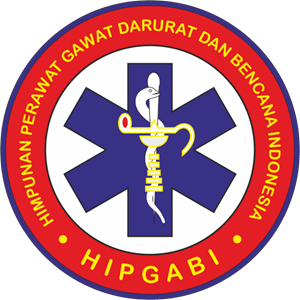Edukasi Kesehatan: Perawatan Kaki terhadap Pengetahuan, Sikap dan Tindakan Pencegahan Ulkus Kaki Diabetik
Downloads
Introduction: People with diabetes mellitus were at 15% risk of developing diabetic foot ulcers. Diabetic foot ulcers can be prevented if people with DM have the knowledge, positive attitude and thus able to perform the diabetic foot care. The aim was to determine the effect of health education on knowledge, attitudes and preventionof diabetic foot ulcers of people with diabetes mellitus.
Method: quasi-experiment research design pretest-posttest control group design. Sample was DM patients who visited the Bangkalan City Health Center, recruited by purposive sampling technique with sample size of 35 people in the treatment group and 35 people in the control group. Independent variable was the health education and the dependent variables were knowledge, attitudes and of diabetic foot ulcers. Data were collected with questionnaires andthen analyzed by Wilcoxon Sign Rank Test and Mann-Whitney Test.
Result: The results showed that there was an effect of health education on knowledge (p=0.000), attitudes (p=0.000) and preventive actions (p=0.000) of diabetic foot ulcers.
Conclussion: Health education was important as an effort to persuade DM patients to take charge on their knowledge and attitude foot care by firstly enhancing.
Azwar, S. (2005) Sikap Manusia : Teori dan Pengukurannya. Yogyakarta: Pustaka Pelajar.
Beiranvand, S., Fayazi, S. and Asadizaker, M. (2015) ‘Effect of Educational Programs on the Knowledge, Attitude, and Practice of Foot Care in Patients With Diabetes', Jundishapur Journal of Chronic Disease Care, 4(2). doi: 10.5812/jjcdc.26540.
Dari, N. W., Nurchayati, S. and Hasanah, O. (2012) ‘Pengaruh Pendidikan Kesehatan Senam Kaki Melalui Media Audio Visual Terhadap Pengetahuan Pelaksanaan Senam Kaki Pada Pasien Dm Tipe 2'.
Dedy Supriadi, Eni Kusyati, E. S. (2013) ‘Pengaruh Pendidikan Kesehatan dengan Metode Demonstrasi Terhadap Kemampuan Merawat Kaki pada Penderita Diabetes Melitus', Jurnal Managemen Keperawatan, 1(1), pp. 39–47.
Desalu, O. et al. (2011) ‘Diabetic foot care: Self reported knowledge and practice among patients attending three tertiary hospital in Nigeria', Ghana Medical Journal, 45(2), pp. 60–65. doi: 10.4314/gmj.v45i2.68930.
Diani, N., Waluyo, A. and Sukmarini, L. (2013) ‘PENGETAHUAN KLIEN TENTANG DIABETES MELITUS TIPE 2 Pendahuluan Metode', Jurnal Keperawatan Indonesia, 16(2), pp. 120–127. doi: 10.3161/000345409X484955.
Gondal, M. et al. (no date) ‘ORIGINAL ARTICLE EVALUATION OF KNOWLEDGE AND PRACTICES OF FOOT CARE IN PATIENTS WITH CHRONIC TYPE 2 DIABETES MELLITUS', pp. 104–108.
Mahdalena, M. and Ningsih, E. S. P. (2016) ‘Effectivity of Foot Care Education Program in Improving Knowledge, Self-Efficacy and Foot Care Behavior of Diabetes Mellitus Patients in Banjarbaru, Indonesia', Kesmas: National Public Health Journal, 11(2), pp. 56–60. doi: 10.21109/kesmas.v11i2.583.
Maulana, H. (2007) Promosi Kesehatan. Jakarta: EGC.
Megawati (2017) ‘ Pengaruh Pengelolaan Pendidikan dan Dukungan Diri Terhadap Efikasi Diri dan Perwatan Diri Klien Diabetes Mellitus Tipe II. STIKES Ngudia Husada Madura.
Meliyanti, F. (2015) ‘Efektivitas Penggunaan Leaflet Terhadap Peningkatan Pengetahuan Remaja Kelas VIII Tentang HIV / AIDS Di SMP Negeri 2 Ogan Komering Ulu', Jurnal Akademika Baiturrahim, 4(2), pp. 26–34. Available at: http://stikba.ac.id/medias/journal/26-34.pdf.
PERKENI (2015) Pengolahan dan Pencegahan Diabetes Melitus Tipe 2 Di Indonesia 2015. doi: 10.1017/CBO9781107415324.004.
Pratamawati, D. A. and Pujiyanti, A. (2012) ‘Tingkat Pengetahuan serta Sikap yang Mendasari Perilaku Masyarakat pada Kejadian Luar Biasa Chikungunya di Kota Salatiga Tahun 2012', Jurnal Vektora, V(2), pp. 41–53.
Rahmawati, Tahlil T, S. (2016) ‘Pengaruh Program Diabetes Self-Management Education Terhadap Manajemen Diri Pada Penderita Diabetes Mellitus Tipe 2 Effects of Diabetes Self-Management Education Program on Self-Management in Patients with Diabetes Mellitus Type 2', Ilmu keperawatan, 4(1), pp. 46–58.
Ramlan silaban, desma paima sianturi (2012) ‘Pengaruh penggunaan macromedia lash, program powerpoint dan peta konsep terhadap hasil belajar kimia pada pokok bahasan hidrokarbon'.
Rusyidi, B., Nurwati, N. and Humaedi, S. (2017) ‘Faktor-Faktor Yang Mempengaruhi Sikap Mahasiswa Program Studi Kesejahteraan Sosial Terhadap Tindak Kekerasan Fisik Suami Terhadap Istri: Studi Di 6 Provinsi', Share : Social Work Journal, 6(1), pp. 119–135. doi: 10.24198/share.v6i1.13154.
Sae-Sia (2013) ‘Effect of a Self-Management Support Program on Diabetic Foot Care Behaviors', International Journal of Research in Nursing, 4(1), pp. 14–21. doi: 10.3844/ijrnsp.2013.14.21.
Sulistyowati, D. A. (2015) ‘Proses Penyembuhan Ulkus Diabetik Di Ruang Melati I Rsud Dr . Moewardi Tahun 2014', 3(1), pp. 83–88. Available at: http://ejurnal.akperpantikosala.ac.id/index.php/jik/article/viewFile/47/28.
Sundari Asni, Aulawi Khudazi, H. D. (no date) ‘Gambaran tingkat pengetahuan tentang ulkus diabetik dan perawatan kaki pada pasien diabetes mellitus tipe 2'.
Yotsu, R, R., Pham, N, M., Oe, M., Nagase, T., Sanada, H., Hara, H., Fukuda, S., Fujitani, J., Yamamoto-Honda, R., Kaijo, K., Noda, M & Tamaki, T. (2014) ‘No TitleComparison Of Characteristics And Healing Course Of Diabetic Foot Ulcers By Etiological Classification: Neuropathic, Ishemic, And Neuro-Ischemic', Jurnal of diabetes and its complications, 28(4), pp. 528–535.
Yuanita, A., Wantiyah and Susanto, T. (2014) ‘Pengaruh Diabetes Self Management Education ( DSME ) terhadap Resiko Terjadinya Ulkus Diabetik pada Pasien Rawat Jalan dengan Diabetes Mellitus ( DM ) Tipe 2 di RSD dr . Soebandi Jember', e-Jurnal Pustaka Kesehatan, 2(1), pp. 119–124.
Yusra, A. (2011) ‘Hubungan antara dukungan keluarga dengan kualitas hidup pasien diabetes mellitus tipe 2 di poliklinik penyakit dalam rumah sakit umum pusat fatmawati Jakarta', Tesis.
1. The journal allows the author to hold the copyright of the article without restrictions.
2. The journal allows the author(s) to retain publishing rights without restrictions.
3. The legal formal aspect of journal publication accessibility refers to Creative Commons Attribution (CC BY).

















